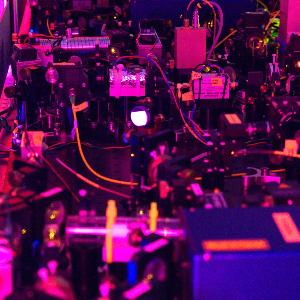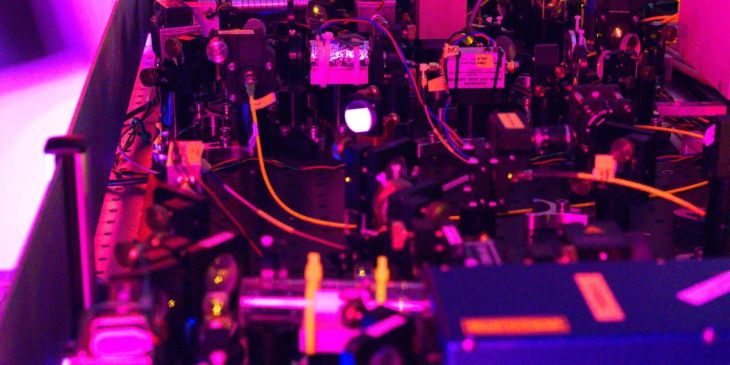
Experimental setup in a quantum lab | © LMU
Quantum technologies are on the rise. One promising area is the simulation of quantum many-body systems – the imitation of complex quantum systems consisting of many interacting particles in extremely controlled model systems. They enable the demonstration of fundamental quantum mechanical effects in their pure form, e.g. in superconductors, and allow deep insights into the quantum mechanics of these systems. Also, they can be used to create completely new physical systems.
Analogue and digital quantum simulators have made considerable progress in recent years and are evolving from purely scientific instruments for physicists to practical tools for real-world problems and industrial applications. They could, for example, support the development of new materials or improve the analysis of chemical processes.
One research effort that has contributed significantly to the advancement of quantum simulation technologies and applications is the European Quantum Flagship project PASQuanS, which was launched in 2018 as a collaboration between various experimental and theoretical research groups as well as industrial partners. The project partners – under the scientific leadership of Professor Immanuel Bloch, Director of the Department of Quantum Many-Body Systems at MPQ and Chair at LMU – have managed to effectively scale systems with atoms and ions and developed them into the most advanced platform for quantum simulations in existence to date. This successful mission is now to be continued with the extension of the PASQuanS2 project. The European Union is funding PASQuanS2 with 16.6 million euros over the next 3.5 years in the Horizon Europe framework programme.









